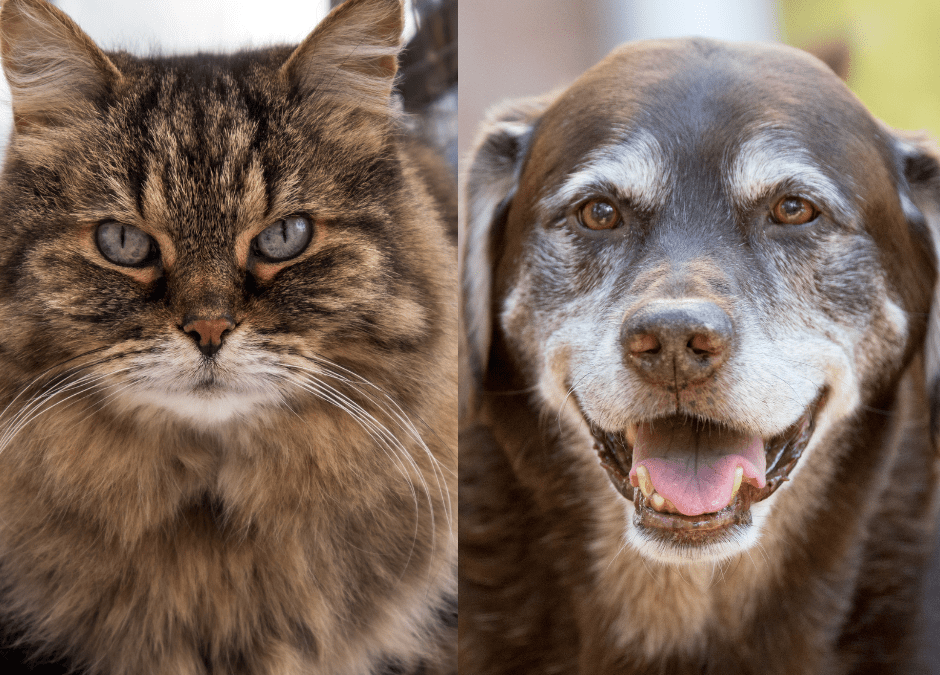As our pets age, they bring a lifetime of memories, companionship, and unconditional love. However, just like us, they also face new health challenges as they enter their golden years. Caring for a senior pet requires understanding their changing needs and being proactive in their health care. In this blog, we’ll explore what it means to care for a senior pet and offer tips on how to keep them healthy and happy in their later years.
Understanding the Aging Process in Pets
Aging affects pets differently depending on their species, breed, and size. Generally, cats and small dogs are considered seniors around the age of 7-10 years, while larger breeds may reach senior status as early as 5-6 years. During this stage, pets experience various physical and mental changes:
- Slowed Metabolism: Senior pets often gain weight more easily due to a slower metabolism. This can lead to obesity, which exacerbates other health issues.
- Joint and Mobility Issues: Arthritis and other joint problems are common, leading to stiffness, pain, and difficulty moving.
- Dental Health: Dental disease is prevalent in older pets and can lead to pain, tooth loss, and infections that affect overall health.
- Decreased Vision and Hearing: Many senior pets experience reduced vision and hearing, which can affect their behavior and interaction with the environment.
- Chronic Conditions: Conditions like diabetes, kidney disease, and heart disease become more common as pets age.
Essential Care Tips for Senior Pets
- Regular Veterinary Check-ups
As pets age, regular veterinary visits become increasingly important. Senior pets should have check-ups at least twice a year. These visits allow for early detection of potential health issues, such as organ dysfunction or cancer, and give you the opportunity to discuss any changes in your pet’s behavior or physical condition with your veterinarian.
- Tailored Nutrition
Senior pets often benefit from a diet formulated specifically for their age group. These diets typically contain lower calories, higher fiber, and added nutrients like glucosamine and chondroitin to support joint health. Your veterinarian can recommend a diet that meets your pet’s specific needs, whether it’s weight management, digestive support, or kidney function.
- Maintain a Healthy Weight
Obesity is a common issue in senior pets and can lead to or exacerbate conditions like diabetes, heart disease, and arthritis. Monitor your pet’s weight closely, and adjust their diet and exercise routine as needed. Regular, low-impact exercise is crucial to keeping your pet fit and reducing the strain on their joints.
- Support Joint Health
Joint pain and arthritis are common in senior pets. Providing a comfortable, orthopedic bed can help alleviate pain and support their joints. Additionally, your vet may recommend supplements or medications to help manage arthritis and keep your pet active.
- Dental Care
Oral health is often overlooked but is critical for your senior pet’s overall well-being. Regular dental cleanings by your veterinarian, along with at-home care like brushing and dental chews, can prevent painful dental disease and improve your pet’s quality of life.
- Monitor Behavior and Mental Health
As pets age, they may experience cognitive decline, similar to dementia in humans. Signs of cognitive dysfunction include disorientation, changes in sleep patterns, and altered interactions with family members. Keeping your pet mentally stimulated with toys, puzzles, and new experiences can help maintain cognitive function.
- Adapt Your Home
Make your home senior-pet-friendly by ensuring easy access to food, water, and litter boxes. Consider adding ramps for pets with mobility issues and placing non-slip mats on slippery surfaces to prevent falls. Keeping your pet’s environment comfortable and accessible can greatly enhance their quality of life.
The Emotional Side of Senior Pet Care
Caring for a senior pet can be both rewarding and challenging. It’s a time when your pet needs you the most, and the bond between you often deepens. However, it can also be difficult to watch your beloved companion age and face health challenges. Remember to cherish every moment, and don’t hesitate to seek support from your veterinarian or pet support groups if you need it.
Conclusion
Senior pets are treasures that bring joy and comfort to our lives. With the right care, they can enjoy their later years in good health and happiness. By staying vigilant to their needs and providing them with the best care possible, you can ensure that your senior pet continues to thrive and bring joy to your home for as long as possible.
Let’s celebrate our senior pets and make their golden years truly golden!

